 Likes: 0
Likes: 0
Results 1 to 1 of 1
-
08-03-16, 08:26 AM #1
Newbie Guide- Beginnerís Tips For Playing League of Legends
Register to remove this adLeague of Legends isn’t a typical game. If you’re interested in playing, you might start to feel overwhelmed by the ridiculous amount of information you’re suddenly expected to have at your fingertips. Don’t panic.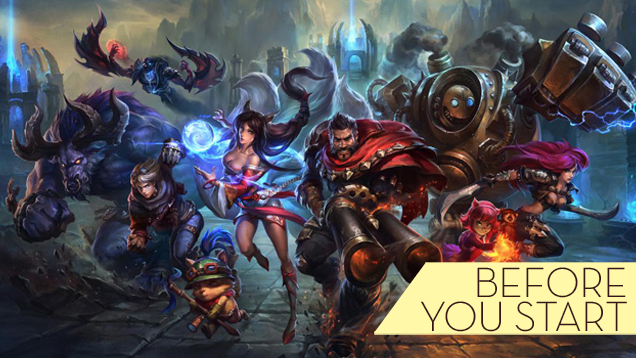
Follow these guidelines as you begin your long and exciting journey to level 30 (and beyond!) in League of Legends and you’ll be just fine.
Don’t fret about specific characters and positions. At least for the first five levels.
You have to get to level 5 in your League of Legends player profile in order to access the majority of its gameplay options. This includes player-vs.-player games. Everything you do before that point only serves to help you get your feet on the ground, so don’t stress yourself trying to figure out what character, or what position you’re best suited for. The only thing you should focus on is: trying out different characters to see what feels best for you. Do you like melee champions? Or ranged ones? Mages or assassins? These are the sorts questions you should be asking yourself at the very beginning.
Understand the basics of the map and different positions.
In order to talk with your teammates, you need to know what you should actually say. You don’t need to become an expert overnight, but a good place to start learning the core League vocabulary is by familiarizing yourself with the general structure of Summoner’s Rift and the positions one can play on it. Here’s the map:It’s comprised of three lanes—top, middle, and bottom. The area in-between the lanes is the jungle. Team bases are located on the bottom left and top right corners of the map. Your position on the team is determined both by thechampion you choose to play as and the specific part of the map you choose to begin the game on. Here are the five main positions that’ll come up in conversation on your way to level 30:Top: The champion who sticks to the top lane on Summoner’s Rift. Normally played by tanks or bruisers—i.e., melee characters who can either take, or deal, a lot of damage. Or both at the same time!Mid: Like top, except for the middle lane. Mid-laners are usually champions with solid ability power, or AP for short.Jungle: The one champion who doesn’t have an assigned lane. Instead, junglers move around the jungle, killing the monsters inside and dropping into any of the three lanes to help their teammates by, say, assassinating an unsuspecting opponent.ADC: One of two champions assigned to the bottom lane. ADCs are supposed to spend the early part of a game farming minions, leveling up, and buying as much gear as possible to keep increasing their attack damage.Support: The other champion who plays on the bottom lane. Supports do lots of nice things like: keep ADCs alive, help them land kills, and place wards on the map to increase their team’s visibility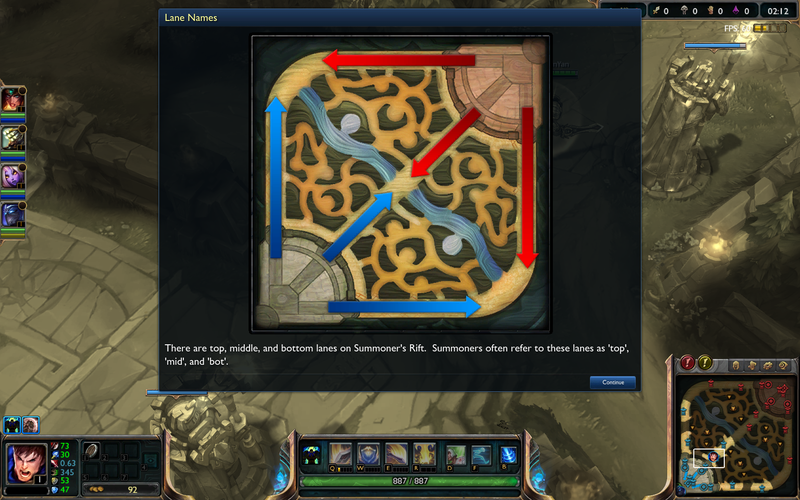
.Look at the mini-map every few seconds.
Map awareness is crucial for pretty much everything in League of Legends. Understanding what is going on in your immediate vicinity is obviously important, but you should keep track of important events that are taking place off-screen as well. If you don’t do this, you can easily be taken by surprise by an enemy you should’ve seen coming. Or miss out on an opportunity to help your team through a difficult fight nearby.
Try all the positions, but focus on one.
You don’t have to head into League with a fully-formed plan of action for how you’re going to spend your first 30 levels. But taking a scattershot approach to your first experiences with the game isn’t a great idea either. Playing a single position over and over again is the best way to learn about its finer details, which helps you improve your abilities in the game and makes it more fun to play.
Don’t get serious about jungling until level 20 (at least).
The one position I wouldn’t recommend starting out with in League is jungling. It’s a more specialized role than the other positions—one that requires specific skills, experience, champions, and in-game items. The first three of those only really come with time. As for the in-game items, you need to be at level 20 to gain access to them.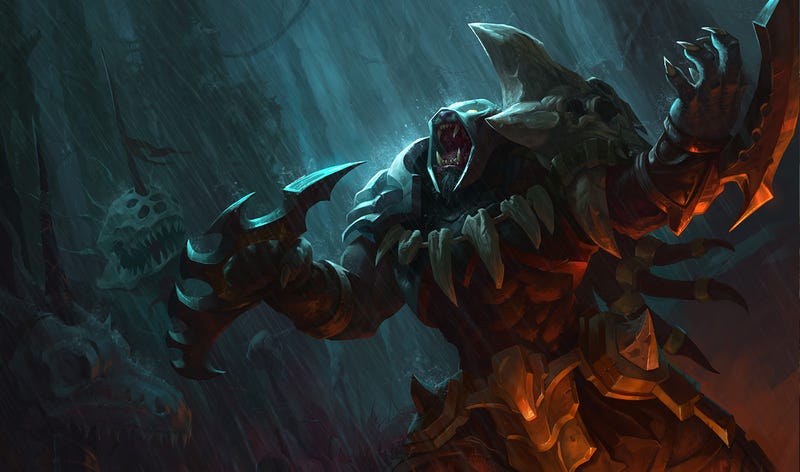
Find a few favorite champions and play a ton of games with them.
Similar to the team positions, the best way to learn up on a specific champion is to play five, ten, even twenty games with them at a time.
Keep trying new champions, too.
There is so much stuff in League of Legends at this point that you’re not going to be able to experience all of it at once. That doesn’t mean you need to play the game with blinders on, though. At least once or twice a week, you should try out a character you’ve never played as before—say, one that’s on the free champion rotation that week. I’ve found it particularly handy to keep trying out different champions for a single position as they appear on the free rotation.
Try to use champion’s abilities in more than one way.
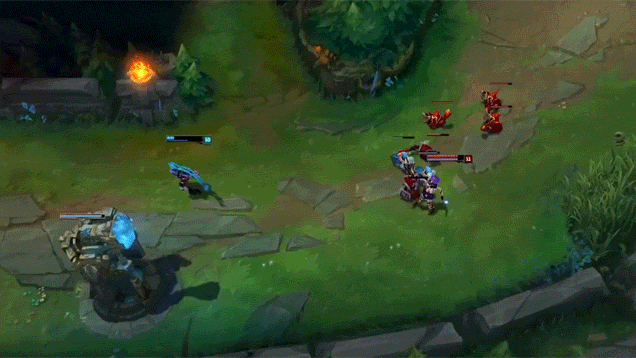
A cool thing you’ll start to discover with enough time and practice is that champion’s abilities are often very useful in totally different ways depending on the situation you’re faced with. Caitlin’s E move, for instance, shoots a net from her rifle that slows down an enemy target. Just as importantly, however, the shot has a powerful kick that knocks Cait backwards. This makes it an incredibly effective tool for making an escape from a tense situation.As you play with a champion and mess around with their abilities, keep asking yourself if you might be missing something. Does that special attack come with some sort of passive character buff that’s actually more valuable? Is the impact on your champion’s mobility greater than the damage some attack is dealing? What was my opponent doing with this dude in the last game that made him such a pain in the butt?
Memorize these hotkeys.
There are a few keystrokes that you should have stored up in your muscle memory by the time you make it to level 30 in League. Here are the main ones:Q, W, E, R: Your four main abilities.Ctrl + Q,W,E,R: Level up that ability (without having to click the little plus sign with your cursor)Alt + Q,W,E,R: Casts spell/ability on yourself (if possible)Shift + Q,W,E,R: Casts spell/ability at your cursor (if possible)F, D: Your two Summoner SpellsS: Stop whatever it is you’re doing. Useful to prevent yourself from auto-attacking minions.1-6: Your items. You only need to press these if a specific item has an active ability.Spacebar: Centers the camera on your champion. Very useful during team battles when things get super hectic visually.G: Send pings to your teammates.Y: Locks/unlocks camera on champion.B: Recall (teleport back to base)P: Opens up shop window (use to check prices on items when you’re away from the base)Tab: Opens up stats page for current game.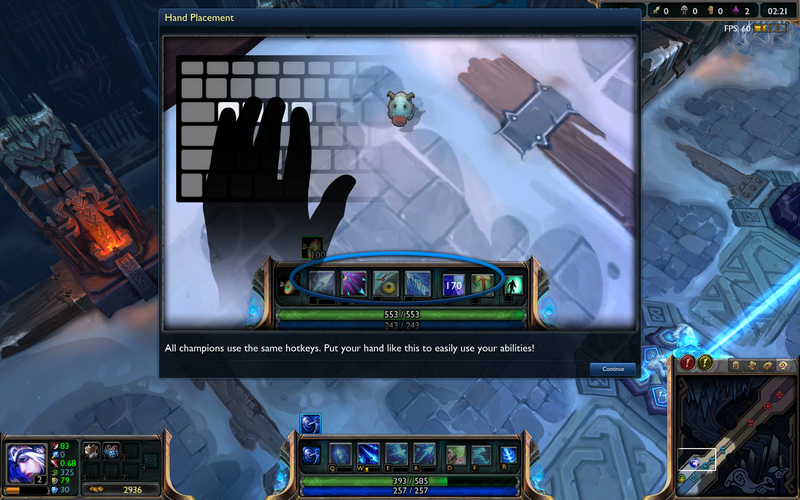
Start learning the League language.
Learning to play League of Legends is as much a mechanical process as it is a cultural one. You have to acclimate yourself to the game’s community. One of the main ways you do this is by familiarizing yourself with its unique lexicon. Here are some key terms you’ll see pop up a lot:CS: “Creep score.” The amount of minions you’ve killed in a game.CC: Crowd control. Abilities that limit enemy champions’ ability to participate in fights—any move that temporarily stuns, roots, blinds, or disarms a target, for instance.Drag: Short for dragon, a big scary monster that you often want to kill with the help of your team in order to receive valuable bonuses. If someone types “drag?” they’re usually asking if you can come help them kill the dragon.Gank: Technically an abbreviation for “gang kill.” Basically, a gank is a surprise attack that makes the ones doing the ganking suddenly outnumber the opponents who are being ganked. Whenever a jungler jumps into a lane to help the teammates there kill their opponents, they’re performing a gank.Wave clear: A champion’s ability to kill an entire wave of enemy minions in one fell swoop or very quickly.Bait: Luring an opponent into a trap, usually by tricking them into thinking you’re weak, isolated, or both.Kiting: Running away from an opponent while simultaneously dealing damage to them.OOM: “Out of mana.” Often typed as an excuse to prevent some imminent accusation like: “WHY THE **** DIDN’T YOU JUST FIRE YOUR ULT?!?!?!”KS: “Kill-steal,” dealing the killing blow, and thus getting credit for a kill that someone else did all the hard work for.MR: Magic resist.Leash: A method used to help junglers by attacking monsters in the jungle to chip away at their health and/or distract them while leaving the final kill for the jungler teammate.The list goes on and on. The only way to become fluent in League’s language is to keep playing the game and eventually learn to recognize the moments when you encounter something new and unfamiliar. Which leads to my next point…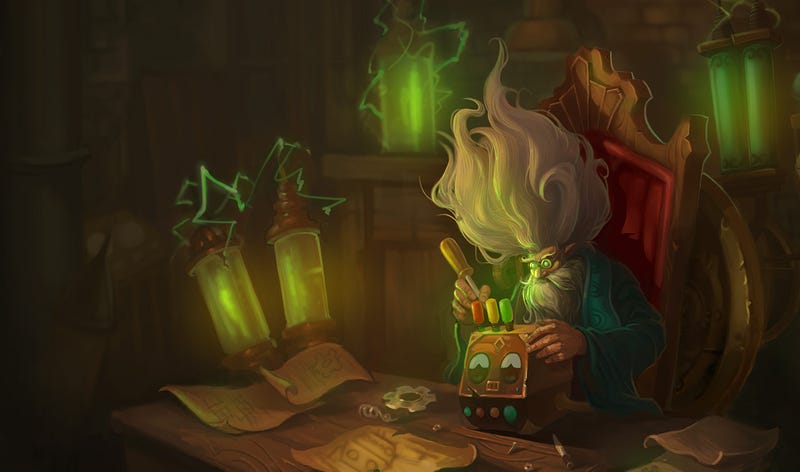
Don’t be afraid to tell people you’re new.
MOBAs often get a bad rap for being full of jerk players. But a lot of League of Legends players actually enjoy the process of teaching newcomers about the game. Don’t be scared to ask people questions. Informing your team that you’re still in the process of figuring the game out can go a long way.
Communicate with your teammates.
You don’t have to become friends with every person you encounter in League of Legends. You probably won’t, either! But that doesn’t mean you can’t communicate with your teammates effectively. Make sure to always call out your desired position during the pre-game team-building phase. If nobody else is saying anything, strike up a conversation with your allies about how you all want to approach the oncoming game. Some people may be unresponsive and just go about their business. There’s nothing you can really do about that other than to try and lead by example.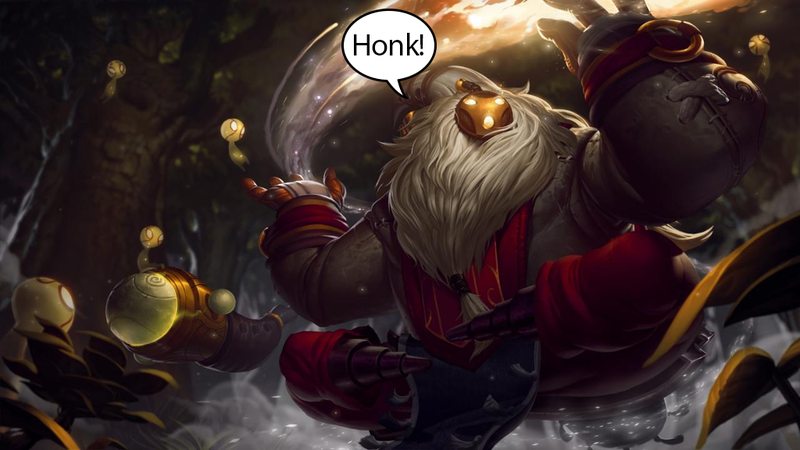
Download a few voice-chat programs.
League doesn’t have any built-in voice feature, so you’ll have to look elsewhere for this once you start playing with friends. The usual suspects are: Skype, Curse Voice, Teamspeak, and Mumble.
Use ARAM and co-op to test out new stuff.
League’s “All Random, All Mid” is the closest thing the gamehas to a “for fun” mode because a) you’re randomly assigned a champion for each game, b) you can only buy items and potions when you die, and c) it’s played on a one-lane map that sparks non-stop team battles from the very beginning. It also has a magical snowball ability that you’re not allowed to use outside of ARAM. Games against bots, meanwhile, are much easier than player-vs.-player ones; people tend to take things much less seriously in these two game modes. This makes them ideal stomping grounds whenever you want to test out something you’re not quite sure how to use yet.
Look up guides for specific characters.
There are countless walkthroughs and detailed guides for how to “build” individual League characters online. Mobafire, Probuilds, and Lolking are all good places to start poking around for these. The summoner school subredditis also a good resource for beginners. Bear in mind, League guides are not step-by-step instruction manuals. Rather, you should look to them as (somewhat) flexible frameworks for what gear to purchase and what special abilities to level up, specific to your character and position. Playing Morgana as a mid-laner is very different experience than playing her as a support character alongside an ally ADC, so make sure you’re reading the right guide before you start taking its advice.
Triple-check every piece of advice you get.
When you first start playing League of Legends, it’ll feel like you know absolutely nothing and everyone else is an expert at the game. It might be true that you know nothing about League. But I’m going to let you in on an important secret: a lot of people you will come across in League have no idea what they’re talking about. So if someone starts yelling at you to buy thornmail in the middle of a game? Well, you can listen to them in the moment if you feel like it. But once the game is done, make sure to cross-check your teammate’s advice to make sure it actually makes sense.
Plan out the items you’re going to buy before a game starts.
Champion build guides are pretty much shopping lists that are tailored to a specific position and play style. As you become increasingly comfortable withLeague’s gameplay and the nuances of your favorite champions, you should start to figure out more of this stuff on your own.Remember the cost and availability of specific items. Usually when I’m playing as an ADC, for example, I start the game with a plan to stay in my lane until I have enough gold to buy a B.F. Sword, since that gives a nice early boost to my attack damage. Obviously, your plans often end up changing on the fly depending on how a game is going. But having even a loosely-structured plan is better than just buying whatever the hell you can afford or think looks the coolest every time you go back to shop.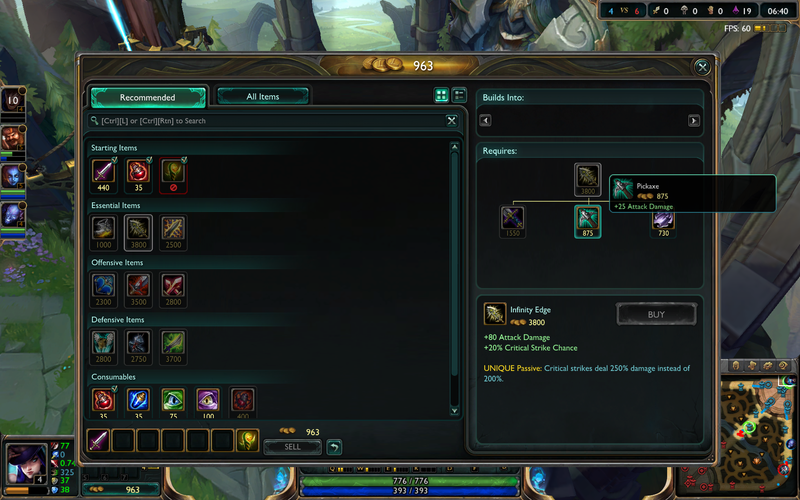
Consider getting some new IRL gear, too.
If you’re serious about honing your performance in League, you might need to upgrade your gaming peripherals. A mechanical keyboard or a solid gaming mouse can make a huge difference in how well you play the game. A nice headset won’t hurt, either.
Play with friends. The right kind of friends.
League is a lot more fun when you’re playing with people you know. But not allLeague of Legends friends are created equally. If you’re just starting out, joining games with a friend who’s been binging on League since its beta will land you in matches with people far more experienced than you. That’s not very fun, and can end up annoying your teammates if you keep dying. So when you start talking to your fellow gamers about jumping into League, make sure that you find people who are both patient and willing to play at a more...basic level than they might be used to. Some people even create alternate “smurf” accounts for this very purpose.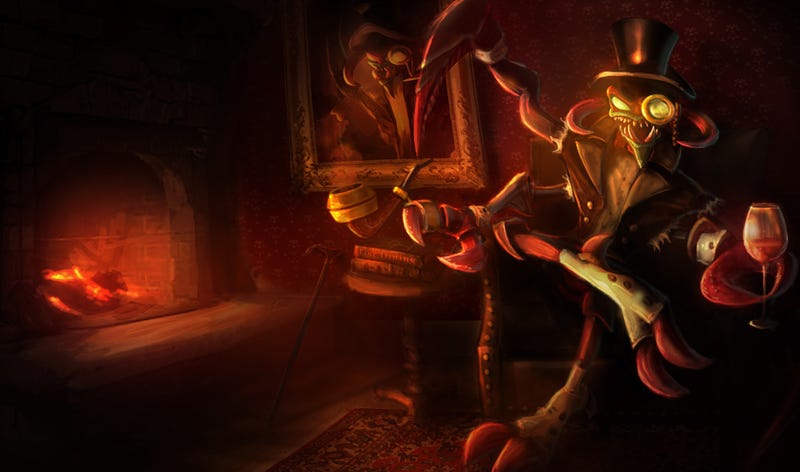
Make sure you can stay at your desk for a whole game.
Most League games played on Summoner’s Rift run between 30 and 45 minutes. They can go over an hour, though. There is also no pause button. Once a game begins, you should be ready and able to commit yourself totally and completely to the task at hand for as long as it takes. Looking away from the screen or not paying attention for a few seconds can cause any number of critical mistakes.Rid yourself of possible distractions—i.e., anything that would make you leave your desk or look away from your computer—before you get dropped into Summoner’s Rift. Put your phone on silent, run to the bathroom, and make sure any cats you might have are a safe distance from your keyboard. Don’t start a game if you know you have to leave for work (or school, or a date, or any life event) in the next hour. In general: just don’t go AFK unless you absolutely have to. Doing so might incur penalties like temporary suspensions from the game. It’s also very disrespectful to your teammates.
Try to stay alive as long as possible.
Death works in a cruel way in League of Legends. Whenever you die, the opponents who killed you get a chunk of gold and experience—assets that make them more powerful. At the same time, death forces you to sit through extended cooldowns that block you from leveling up, getting more gold and better gear, or really doing anything remotely useful. These cooldowns get longer and longer as the game goes on and you keep dying, so don’t treat death lightly. Retreat is almost always a better option than heading into some sticky situation you don’t think you’re going to survive.
Don’t let yourself become food.
The other bad thing about death in League is that repeated kills will make a game snowball out of control very quickly. If a single champion kills you two, three, or—god help you—four times, you’ve effectively “fed” them—turned them into an overpowered monster that will require an entire team to kill.If you notice that you’re starting to feed an opponent, you should try to nip it in the bud as fast as you can. Ask your teammates for help. Stay as far away from the fed opponent as possible while farming from a safe distance. Once you have enough money, go back to your base and buy gear that will help you deal with that specific enemy.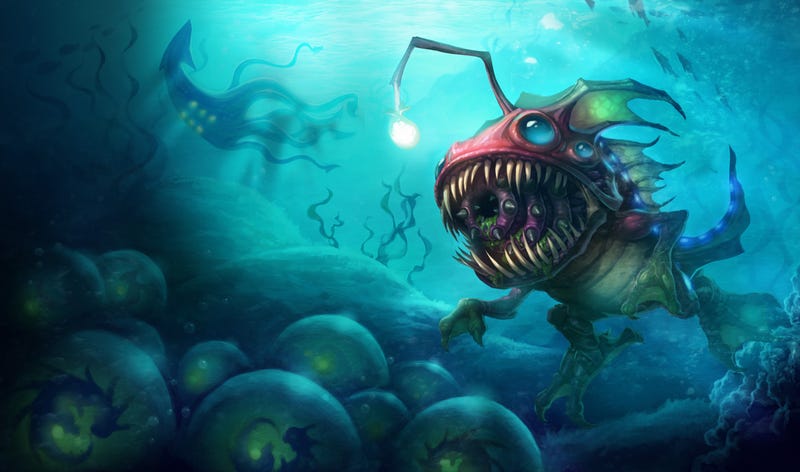
Whenever you die, try to figure out why.
No matter what, you’re going to die a lot in League of Legends, especially in your earliest games. You’re just going to have to accept that. What you should start trying to do, however, is controlling how you respond to your character’s many deaths. Whenever you are confused by who or what killed you, click on the “death recap” option that pops up on-screen:This will lead to an itemized list of the exact champions and their abilities that brought your demise: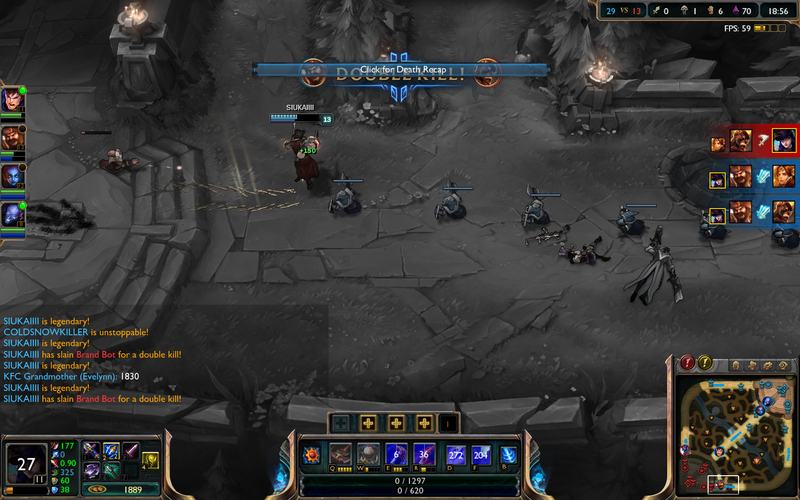 You don’t have to memorize everything you see in your death recaps. But see if you can identify trends. One important thing that separates good players from bad ones is that the former are able to reflect on their actions, realize where they went wrong, and come up with ways to do better in the future.
You don’t have to memorize everything you see in your death recaps. But see if you can identify trends. One important thing that separates good players from bad ones is that the former are able to reflect on their actions, realize where they went wrong, and come up with ways to do better in the future.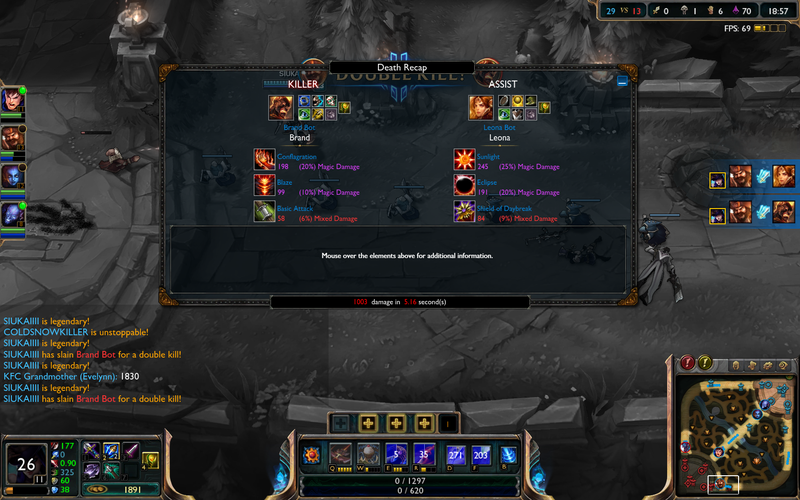
Stay behind your minions!
This is the single-most useful piece of advice from League’s otherwise terrible tutorial. Minions are like some incredible moving cushion that will shield you from incoming damage—be it from enemy champions, towers, or even other minions. Whenever possible, do let a group of minions step into a fight before you do. They soak up tons of damage, divert the aim of enemy towers, and block special abilities opposing champions try to unleash on you.On a related note: keep track of the health bars of the minions in your immediate vicinity. You don’t want to be left stranded if they all end up dying.
Stay out of range of towers, too.
While it’s always a good idea to stay behind your minions, the one time it is absolutely essential to do so is when you’re attacking an enemy tower. These defensive structures will take away huge chunks of your health bar with every hit, and they can’t be damaged by any of your special attacks. Don’t ever try attacking a tower, or even getting in, unless you have a solid minion buffer.By the same token, you can lean on your closest tower for support if an opponent is pushing you backwards in your lane. Hugging a tower will give you an extra layer of defense that’ll help you kill off a wave of enemy minions and keep opposing champions at bay.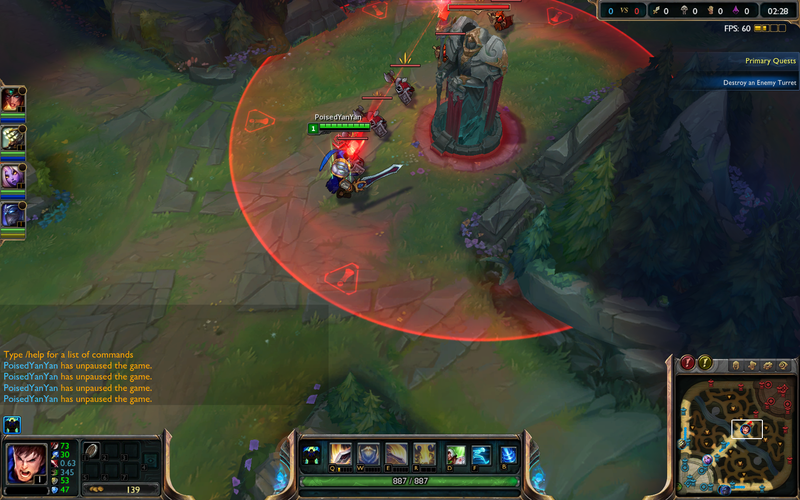
Learn how to last-hit.
Killing minions in League of Legends isn’t a simple matter of right-clicking on a target and sitting back as your champion auto-attacks them into the ground. Remember: the game is all about efficiency. Auto-attacking won’t do you much good because it’s a relatively unproductive way to take out bad guys.To reap the greatest rewards (in terms of gold and experience) from your minion kills, you have to focus on dealing the killing blow. Keep a close eye on the health bars of enemy minions whenever you’re fighting a group of them, and aim your attacks accordingly so you land killing blows on the minions. You can tell you’ve landed a successful killing blow when the game makes a little jingling sound and a yellow number pops up to show how much gold you just earned: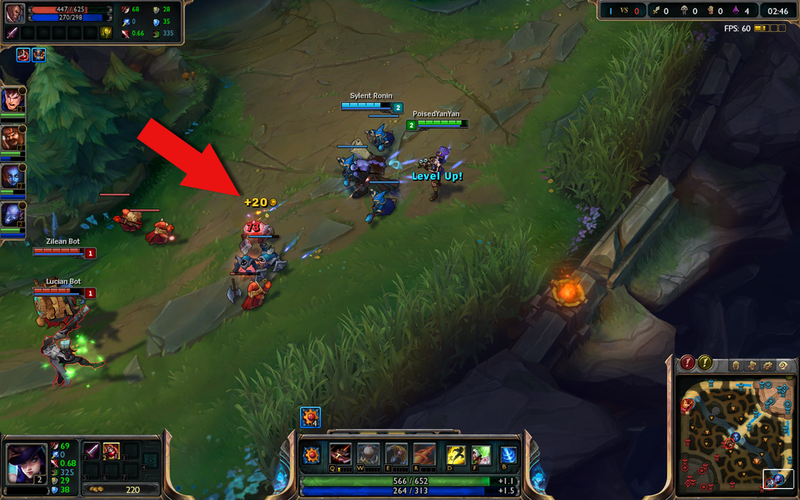
Pay attention to your Creep Score.
Last-hitting isn’t something you perfect overnight. It takes lots of practice over the course of many, many games. You can keep track of how well you’re farming by checking your “Creep Score,” or CS, which is the League term for how many minions you’ve killed so far in a game. You can find this number by pressing tab to open up the match’s stats during a game. Or if you want to get really technical with it, you can check your CS after a game is finished by visiting your “Match History” page:...and factor in how long the game lasted to see what your CS per minute was. It’s good to shoot for 10 CS per minute. Unless you’re amazing at last-hitting and farming, you probably won’t do that well to start. Try to at least get to 6 or 7.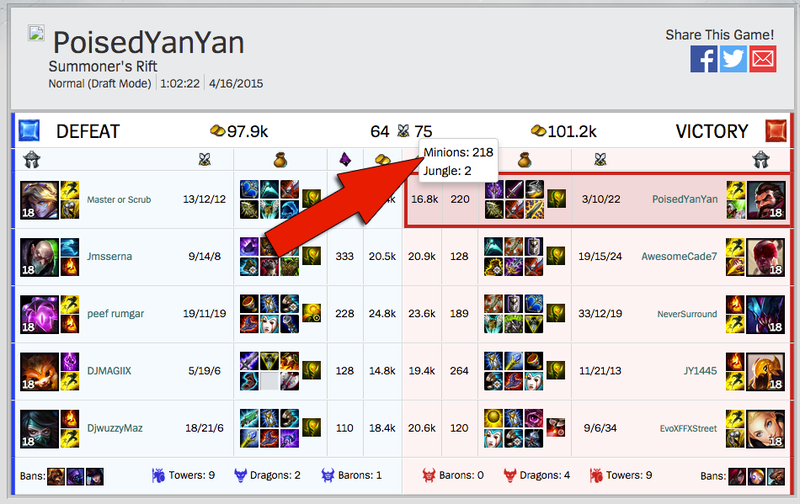
Be wary of pushing lanes.
The other reason auto-attacking minions is bad is that it disrupts the natural ebb and flow of battle between each team’s NPC army. While last-hitting juststeals killing blows from your minions, auto-attacking pushes an entire wave of minions forward. Since you can’t directly control your minions, this means that they’ll head farther and farther into enemy territory. If you keep following them, you’ll increase the risk of being killed.On the bottom lane, for instance, the safest position to be in is anywhere behind the river the cuts through the middle of the map. That way, the terrain in Summoner’s Rift provides a natural barrier against enemy ambushes. If you push your minions beyond that point, you’re essentially nudging yourself into a danger zone....which isn’t to say you should never push your lane. Sometimes you want to, or need to push a lane in order to successfully press an attack. The point is: you should never advance along the front line of a battle in League of Legendswithout considering the risks that come with doing so. The worst mistake beginners make so, so often is trying to rush into every situation like they’re Rambo. That’s just going to get you killed. And probably some of your teammates, too.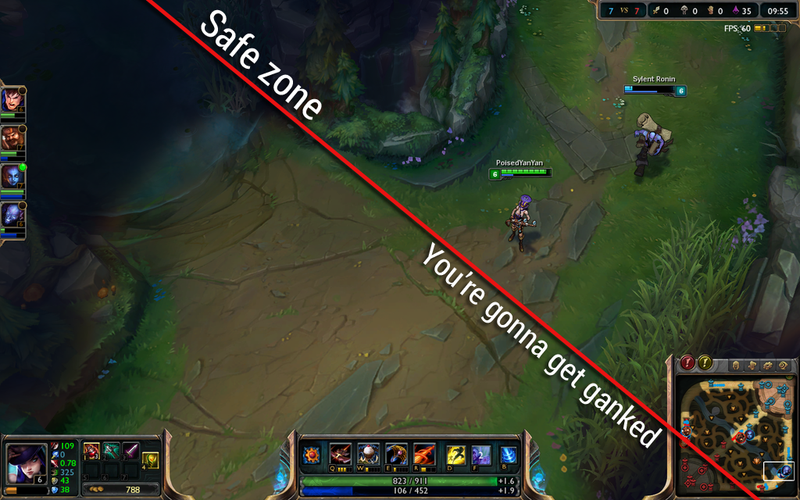
Never stop farming during a game.
It’s tempting to think of minion kills as something you only need to worry about at the very beginning of the game. But you should always be farming in-between other activities. Taking out waves of enemy minions is important in the late-game phase because large groups of them can easily decimate one (or more) of your towers if your whole team is off fighting on another part of the map. Clearing a wave or two of minions to get some more gold might also be a better use of your time than making the trek over to another part of the map to join into a team battle.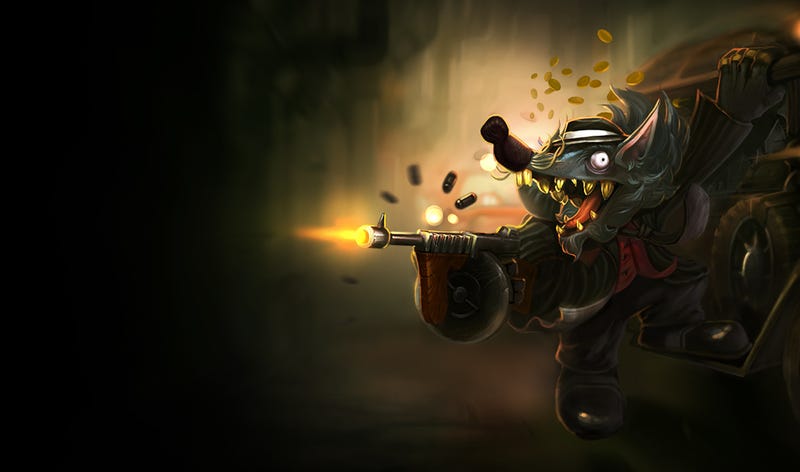
Don’t buy champions with Riot Points unless you absolutely have to.
You can unlock champions to play with permanently by spending Riot Points (RP) or Influence Points (IP). While you accumulate IP over time simply by playing the game, there’s no way to acquire RP without spending real-world cash. Avoid wasting RP on unlocking champions. Particularly when you’re just starting out, there’s really no telling which champions you’ll end up preferring to play as anyways. The free weekly rotations give you a convenient way to test out groups of them at a time, so just stick to those and unlocking your favorite ones as you gather IP.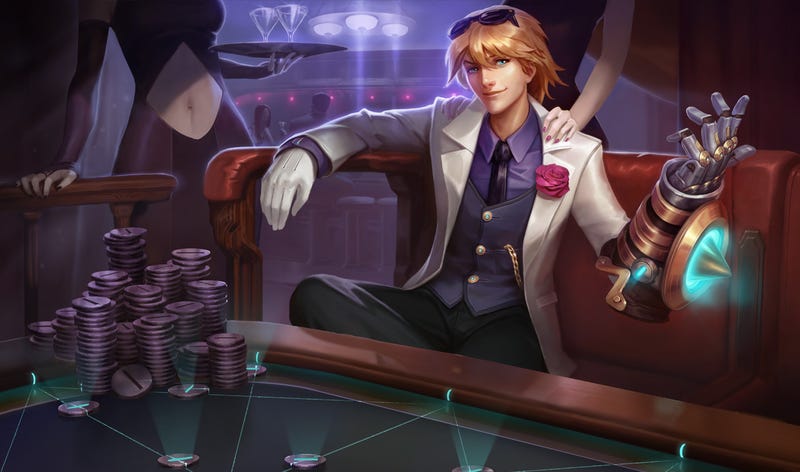
Actually, don’t buy anything with RP if you can buy it for IP.
It’s very easy to waste tons of RP (and thus lots of money) on League of Legendsif you’re not careful about when and how you make purchases. A good rule of thumb to help you avoid getting suckered into Riot’s lucrative free-to-play monetization scheme is: don’t spend RP on anything that’s also available for IP. That way, you’ll only end up spending RP (i.e., real money) on optional aesthetic upgrades like champion skins. And really, you shouldn’t bother plunking down cash for those until you figure out who you really like to play as. There’s nothing more annoying than spending five or ten bucks on a rad skin only to realize a few games later that you absolutely hate the champion it goes with.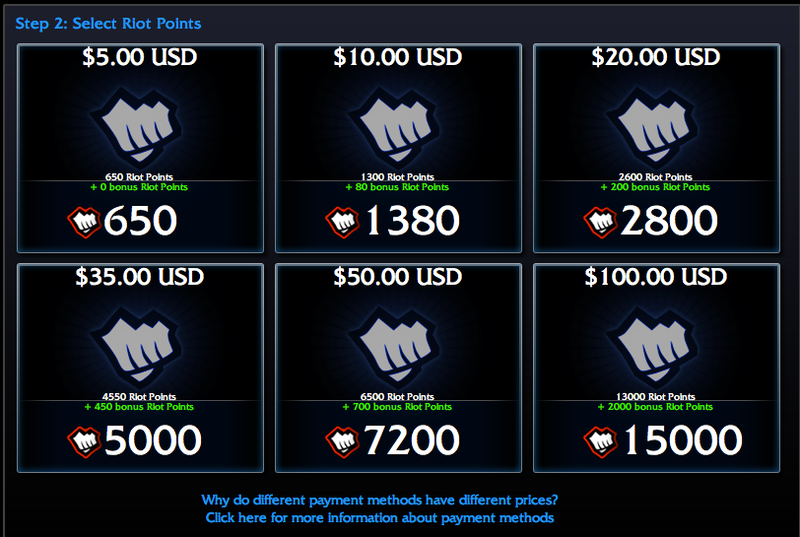
Don’t worry about runes until you reach level 20.
Speaking of things you shouldn’t be buying at the outset of your Leagueadventures, stay away from runes. These are enhancements that beef up a character’s passive abilities and base-level stats—attack speed, critical damage, that kind of thing. Eventually, runes will become very important. They aren’t important at the beginning of the game, so save yourself an extra headache by keeping them on the backburner. Disregard the notifications the game client gives you every time you level up saying that you’ve got more rune pages. And whatever you do, do not buy Tier 1 and 2 runes. They end up being useless once Tier 3 runes become available, which happens once you reach level 20.
Do pay attention to your masteries from the start.
Mastery points are similar to character-enhancements to runes, the main difference between the two being that mastery points are only available in a finite amount (30, one for each level), and you don’t have to spend any IP to acquire them. Since they don’t cost anything, mastery points are worth spending immediately once you get access to them. Much like character builds, figuring out the best way to allocate mastery points is just a matter of finding the right guide.
Follow along with the patch notes.
Riot changes League of Legends in big ways very often. The only way to really keep track of these is by following along with the patch notes they release prior to any scheduled update. Any time you try logging on and see that the game client needs to download something, then, it’s probably a good time to check on the League website to see what’s going on. That’ll save you any unpleasant surprises if, say, your favorite character has suddenly been nerfed into the ground.
Remember: surrender is always an option.
Or, at least, once you’ve played a match for 20 minutes. Trying to salvage a game isn’t always worth the trouble it takes to muster a dispirited and bickering team back into a fight. Save yourself some time and a potential headache by moving on.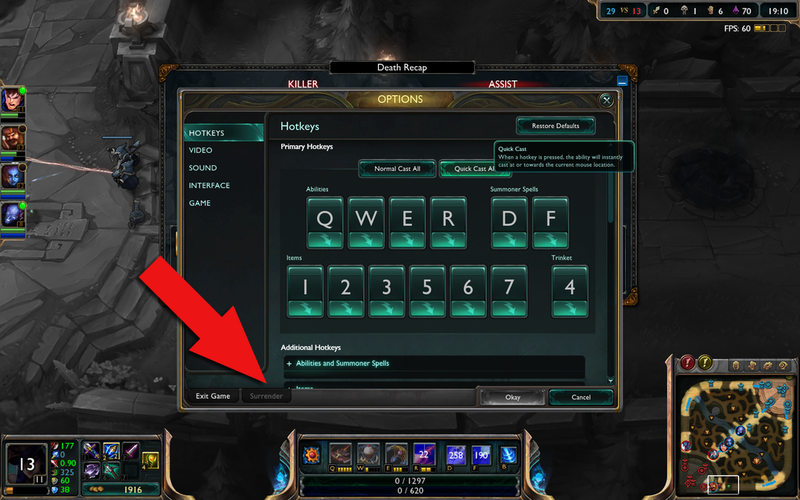
Say “GG” at the end of games.
It doesn’t matter if you think the game you just played was a spectacular failure or a stupendous victory. Type “gg” in the post-game chatroom. It’s just common courtesy.To contact the author of this post, write to [email protected] or find him on Twitter at @YannickLeJacq.
› See More: Newbie Guide- Beginnerís Tips For Playing League of LegendsLast edited by Wise; 08-03-16 at 08:30 AM.
Related Threads - Scroll Down after related threads if you are only interested to view replies for above post/thread
Visitors found this page by searching for:
Nobody landed on this page from a search engine, yet!
SEO Blog



 Wise
Wise






 Reply With Quote
Reply With Quote





